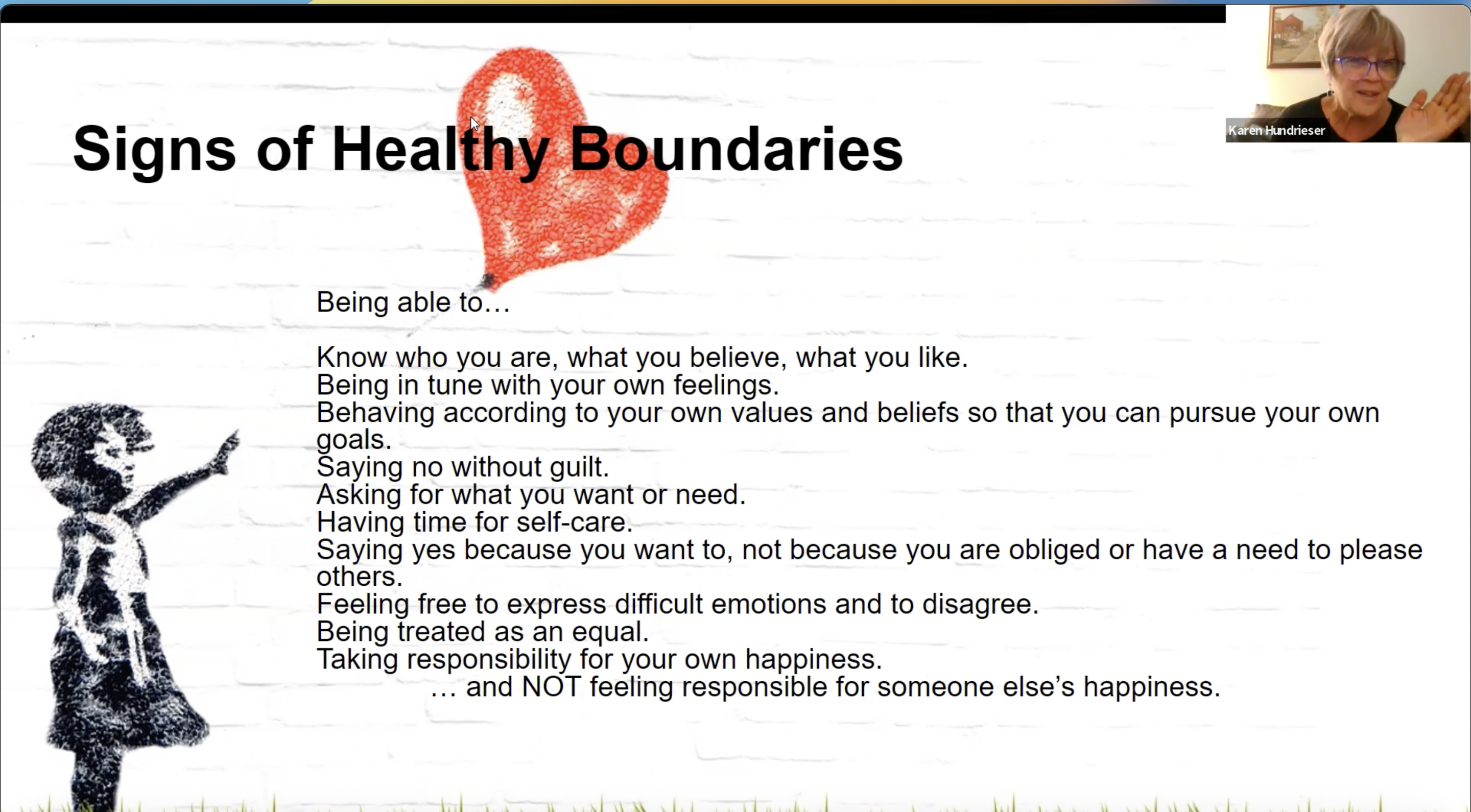One of the special things we enjoy at Companis is gathering together for Worker Support meetings – a space for connection and reflection with fellow volunteers. Some of these meetings include professional and personal development workshops, guided by people with expertise.
One of our recent workshops focused on how setting boundaries creates more freedom. Karen Hundrieser led the discussion. Karen has a long history with Companis. Her current role is “Worker Engagement – Special Projects.” She has a background that includes pastoring multiple congregations, leading social service community programs, and teaching at the college level.
Karen introduced us to a terrific TEDx Talk entitled “Good Boundaries Free You,” by Sarri Gilman. Sarrie, a psychotherapist, author and speaker, lives on Whidbey Island and has also been deeply involved in Snohomish County where a third of our Companis volunteers are serving 13 nonprofit agencies. Sarri’s 15-minute talk is worth listening to, no matter where you are in life. As Sarri says, “Everyone is in the middle of a life story and your story is being shaped by what you are saying ‘yes’ to, and what you are saying ‘no’ to.”
Karen opened the workshop by referencing the video and reminding us that boundaries are about self care, adding, “Self care has a larger landscape than just diet and exercise.” She also shared slides at the workshop, including the one pictured above on setting healthy boundaries which references the work of Sharon Martin, LCSW. (Karen’s face appears in the right-hand corner.)
As the workshop progressed, Karen noted that even with “yes” or “no” options, flexibility needs to be taken into account. “Not having boundaries can be detrimental to our mental health but going too far and overthinking them can also impact our emotional well being. So it’s about finding balance, and all of this is to establish boundaries, but not be dictated by them.”
On the topic of saying “no,” there was a lot of discussion about how tough that can be, both for the person saying it and the person receiving that “no.” We agreed that giving ourselves time to think about our “yes” or “no” answer before giving it is important (e.g., the proverbial, “Let me sleep on it and I’ll get back to you.”). And if the answer is “no,” it’s important to give the person you’ve said “no” to the space and time to absorb that answer, especially if tender feelings are attached to it.
Companis ED, Gary Davis, also reminded us that a “no” answer can be a very positive thing to hear. “At Companis, we see people who walk through our door and want to serve their community. And we stop and say, ‘Is this the right moment in your life for this?’ We consider this a healthy conversation that often leads to exploring boundaries. And when they say no to things, that’s a gift because it provides clarity.”
“By not having boundaries,” Jennifer Wing, Associate ED of Programs, added, “we can lose a sense of ourselves and forget who we are. Setting boundaries helps us be our best selves.”
At the end of the day, says Karen, setting boundaries is about defining, communicating, and setting consequences. “Stay simple, don’t over explain, and say what you need. And remember, setting boundaries improves our relationship with other people and it improves our relationship with ourselves.”

